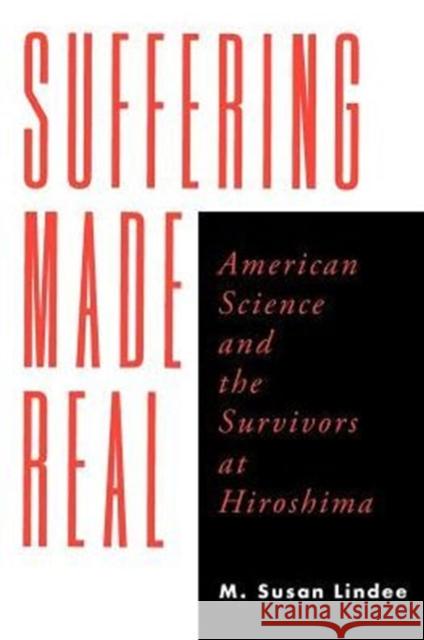Suffering Made Real: American Science and the Survivors at Hiroshima » książka
Suffering Made Real: American Science and the Survivors at Hiroshima
ISBN-13: 9780226482385 / Angielski / Miękka / 1997 / 295 str.
Suffering Made Real: American Science and the Survivors at Hiroshima
ISBN-13: 9780226482385 / Angielski / Miękka / 1997 / 295 str.
(netto: 156,48 VAT: 5%)
Najniższa cena z 30 dni: 162,96
ok. 30 dni roboczych.
Darmowa dostawa!
The atomic bombs dropped on Hiroshima and Nagasaki in August of 1945 unleashed a force as mysterious as it was deadly radioactivity. In 1946, the United States government created the Atomic Bomb Casualty Commission (ABCC) to serve as a permanent agency in Japan with the official mission of studying the medical effects of radiation on the survivors. The next ten years saw the ABCC's most intensive research on the genetic effects of radiation, and up until 1974 the ABCC scientists published papers on the effects of radiation on aging, life span, fertility, and disease.
"Suffering Made Real" is the first comprehensive history of the ABCC's research on how radiation affected the survivors of the atomic bomb. Arguing that Cold War politics and cultural values fundamentally shaped the work of the ABCC, M. Susan Lindee tells the compelling story of a project that raised disturbing questions about the ethical implications of using human subjects in scientific research.
How did the politics of the emerging Cold War affect the scientists' biomedical research and findings? How did the ABCC document and publicly present the effects of radiation? Why did the ABCC refuse to provide medical treatment to the survivors? Through a detailed examination of ABCC policies, archival materials, the minutes of committee meetings, newspaper accounts, and interviews with ABCC scientists, Lindee explores how political and cultural interests were reflected in the day-to-day operations of this controversial research program.
Set against a period of conflicting views of nuclear weapons and nuclear power, "Suffering Made Real" follows the course of a politically charged research program and reveals in detail how politics and cultural values can shape the conduct, results, and uses of science."











